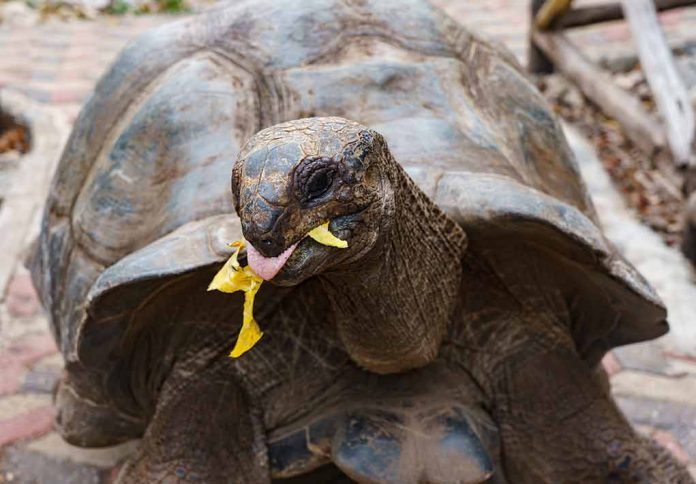
(StraightNews.org) – Officials in Tanzania say that eight children and one adult have died after consuming turtle meat. A further 78 people were hospitalized on Pemba Island, in the country’s archipelago, almost a week after consuming the meat, which is considered a delicacy in Tanzania despite its risks.
Mkoani District medical officer Dr. Haji Bakari told reporters that laboratory tests confirmed the cause of the deaths and hospital admissions and that these resulted from turtle meat ingestion.
Authorities in the East African nation sent a crisis team to the affected area and urged people to avoid the meat. Previous incidents, also on the island of Pemba, have likewise caused deaths, including that of a 3-year-old child and six others in 2021.
Sea turtle meat poisoning, known as chelonitoxism, is a rare but often fatal reaction to turtle consumption. The National Capital Poison Center says there is no known treatment or cure for chelonitoxism, which is caused by uncontrolled algae growth that occurs in both marine and freshwater environments. Chelonitoxism is also associated with shellfish poisoning and impacts the nervous system and several organs, including the liver, brain, and kidneys. Poisoning symptoms include nausea, vomiting, and mouth and throat ulceration. Severe cases result in paralysis, muscular weakness, coma, and death.
The responsible algae, known as blue-green algae, becomes poisonous when it produces cyanobacteria. Cyanobacteria are found in algae species in many of the world’s tropical environments, including parts of Hawaii and Australia.
The World Wildlife Fund (WWF) describes sea turtles as 100-million-year-old creatures currently at risk of extinction. These marine animals are killed for their eggs and their meat, and their habitat is increasingly under pressure due to human activity. The WWF warns that all species of the ancient animal are under threat.
Tanzania has five different kinds of sea turtles, including the green species, olive ridley, and leatherback. Despite efforts to preserve the animals on Pemba Island, there are no specific legal protections.
Copyright 2024, StraightNews.org













